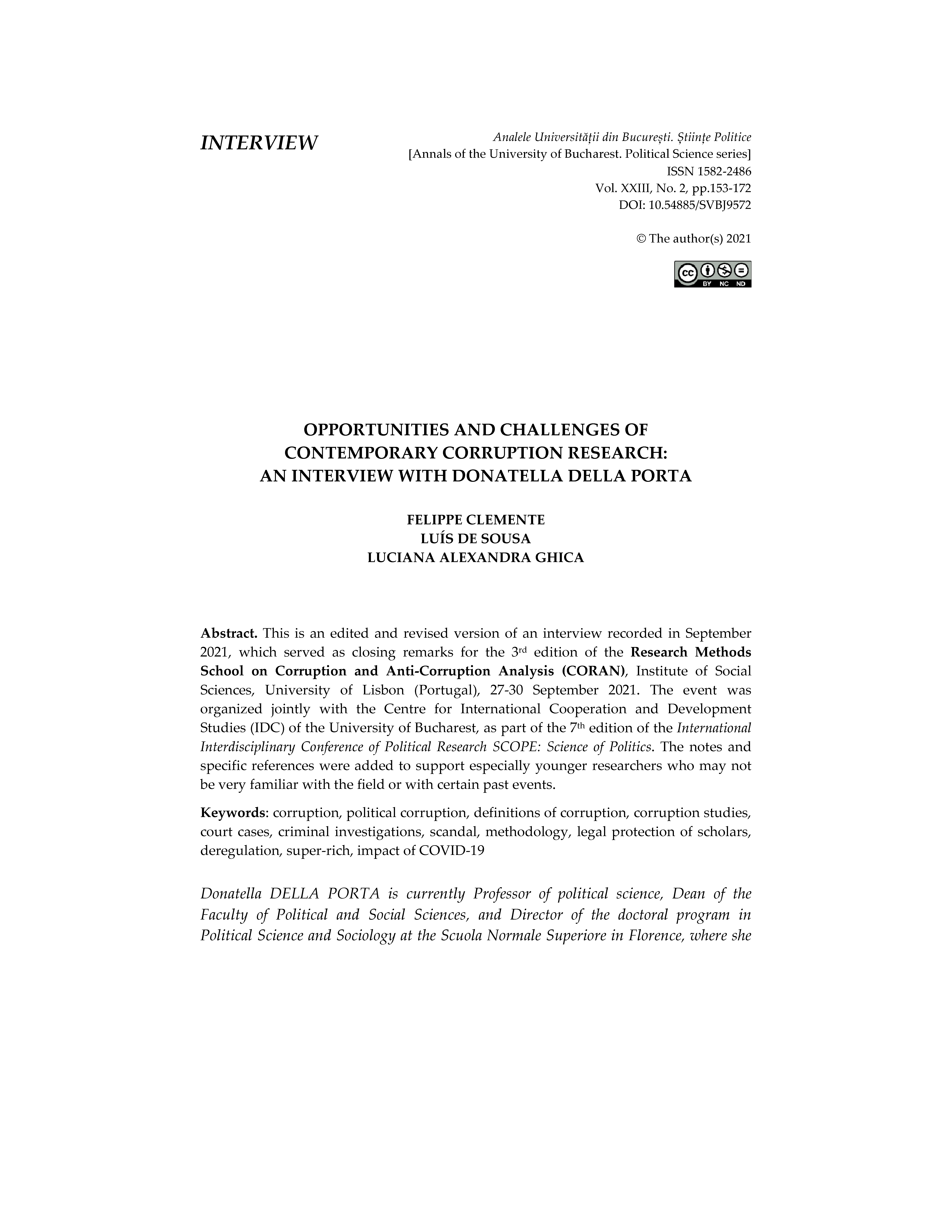OPPORTUNITIES AND CHALLENGES OF CONTEMPORARY CORRUPTION RESEARCH: AN INTERVIEW WITH DONATELLA DELLA PORTA
DOI:
https://doi.org/10.54885/SVBJ9572Cuvinte cheie:
corruption, political corruption, definitions of corruption, corruption studies, court cases, criminal investigations, scandal, methodology, legal protection of scholars, deregulation, super-rich, impact of COVID-19Rezumat
This is an edited and revised version of an interview recorded in September 2021, which served as closing remarks for the 3rd edition of the Research Methods School on Corruption and Anti-Corruption Analysis (CORAN), Institute of Social Sciences, University of Lisbon (Portugal), 27-30 September 2021. The event was
organized jointly with the Centre for International Cooperation and Development Studies (IDC) of the University of Bucharest, as part of the 7th edition of the International Interdisciplinary Conference of Political Research SCOPE: Science of Politics. The notes and specific references were added to support especially younger researchers who may not be very familiar with the field or with certain past events.





